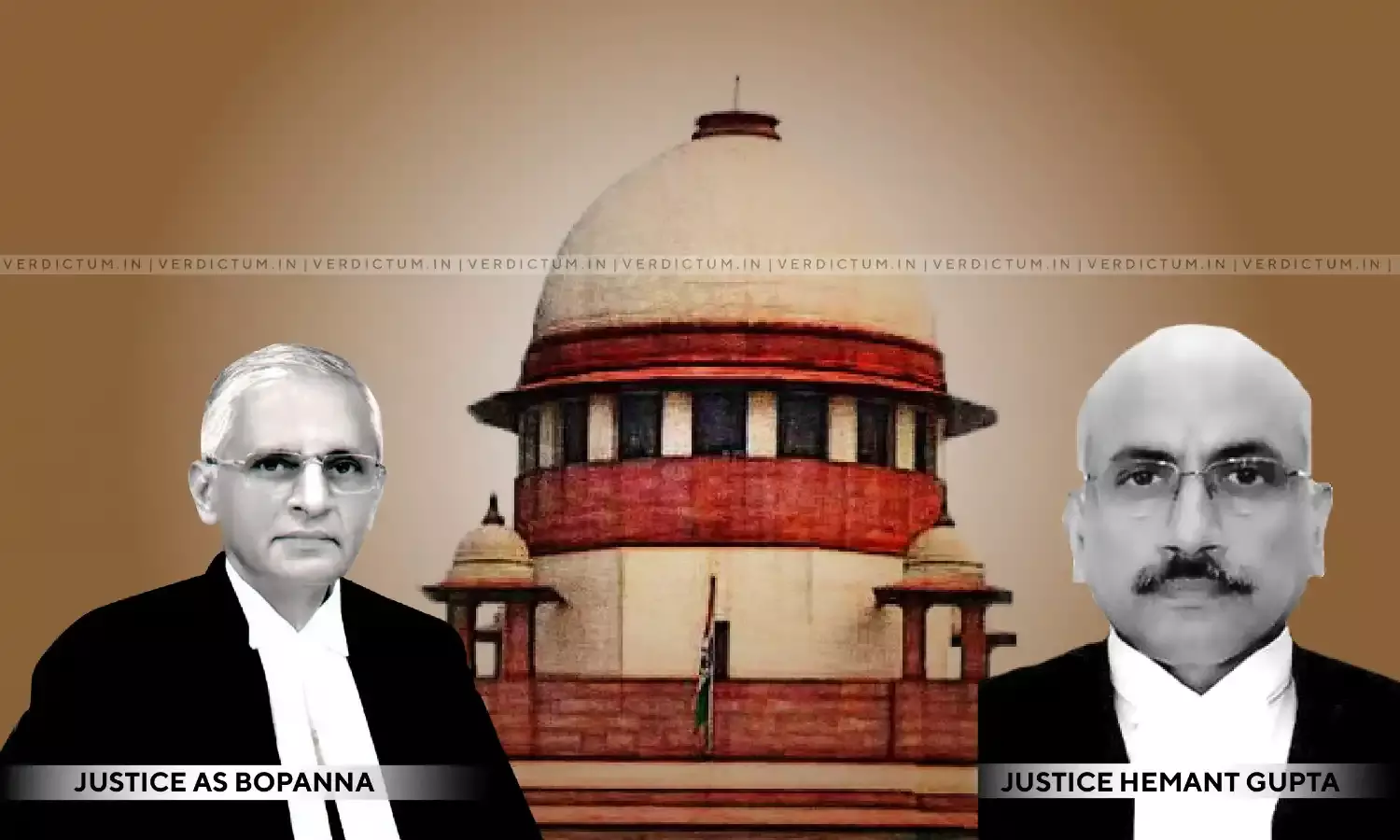Supreme Court Outlines Power Of State Government And Governor To Grant Remission To Convicts
A Bench of the Supreme Court consisting of Justice Hemant Gupta and Justice AS Bopanna has outlined the powers of the State Government and the Governor to provide remission to the prisoners undergoing sentence. The Bench held that the State Government can grant remission under Sections 432, 433 and 433A of the Criminal Procedure Code in case of a prisoner, who has been sentenced for life for an offence for which death is one of the punishments and has completed sentence for 14 years. However, in the case of a convict who has undergone sentence for less than 14 years, the power rests with the Governor under Article 161 of the Constitution, to be exercised based on aid and advice of the state government.
While hearing two appeals filed by the Government of Haryana and a prisoner, the Bench held, "Therefore, the cases of the prisoners who have completed 14 years of actual imprisonment can be decided by the State Government in terms of Sections 432 and 433 of the Code unless the State Government chooses to seek the approval of the Hon'ble Governor. There is nothing illegal or improper to seek approval of the Hon'ble Governor in all cases but in the cases where the prisoner has not undergone 14 years of actual imprisonment falling within scope of Section 433-A of the Code, it is for the Hon'ble Governor to exercise the power conferred under Article 161 of the Constitution, though on the aid and advice of the State Government."
Outlining the powers of the Appropriate State Government and the Governor, the Bench noted,
"Thus, a prisoner has to undergo a minimum period of imprisonment of 14 years without remission in the case of an offence, the conviction of which carries death sentence, to take benefit of policy of remission framed by an appropriate government under Section 432 of the Code in view of the overriding provision of Section 433-A of the Code. However, the power of the Hon'ble Governor to commute sentence or to pardon is independent of any such restriction or limitation. The State Government can frame a policy of grant of remissions either under Section 432 of the Code or under Article 161 of the Constitution. The Governor continues to exercise the power of commutation and release under Article 161 of the Constitution, notwithstanding Section 433-A of the Code. The action of commutation and release can thus be pursuant to a governmental decision and the order may be issued even without the Governor's approval. However, under the Rules of Business and as a matter of constitutional courtesy, it may seek approval of the Governor, if such release is under Article 161 of the Constitution."
The Bench made a distinction between the rights of the State Government and the Governor, in the light of Section 433-A of the Cr.PC. The bench observed,
"Section 433-A of the Code starts with a non-obstante clause restricting the right of the appropriate Government, to suspend the sentence of imprisonment for life imposed on conviction of a person for an offence for which death is one of the punishments provided by law, that such person shall not be released from prison unless he has served at least 14 years of imprisonment. Therefore, the power of the appropriate Government to release a prisoner after serving 14 years of actual imprisonment is vested with the State Government. On the other hand, the power conferred on the Governor, though exercised on the aid and advice of the State, is without any restriction of the actual period of imprisonment undergone by the prisoner. Thus, if a prisoner has undergone more than 14 years of actual imprisonment, the State Government, as an appropriate Government, is competent to pass an order of premature release, but if the prisoner has not undergone 14 years or more of actual imprisonment, the Governor has a power to grant pardons, reprieves, respites and remissions of punishment or to suspend, remit or commute the sentence of any person de hors the restrictions imposed under Section 433-A of the Constitution. Such power is in exercise of the power of the sovereign, though the Governor is bound to act on the aid and advice of the State Government."
Facts of the Case
A Single Bench of the High Court of Punjab and Haryana had directed the Government of Haryana to consider the feasibility of issuing a fresh policy related to exercise of its power conferred under Article 161 with a retrospective operation, without discriminating between identically situated prisoners. Both the State and the petitioner before the High Court, a convict, had challenged the decision before the Supreme Court.
The issue before the High Court was regarding which of the two policies issued by the State Government regarding remission, one in 2002 or the other in 2008, will apply to a prisoner convicted in 2010.
Case - The State of Haryana & Ors. Vs. Raj Kumar @ Bittu




